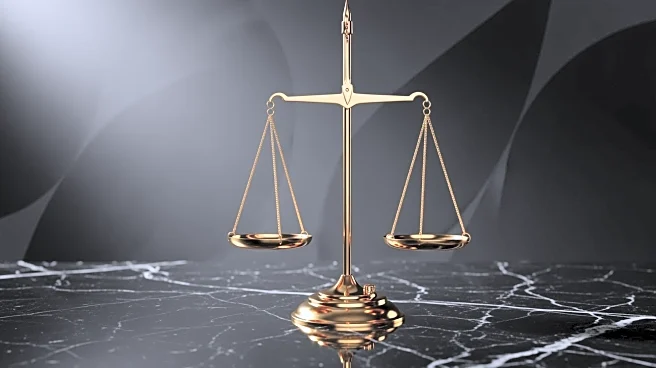What's Happening?
Joe Lewis, a UK billionaire and owner of the Tottenham Hotspur football club, has received a pardon from President Trump. Lewis was previously charged with sixteen counts of securities fraud and three
counts of conspiracy, stemming from allegations that he passed insider information to various contacts, including private pilots and romantic partners, resulting in millions of dollars in profits. In 2024, Lewis pleaded guilty to conspiracy and two counts of securities fraud, agreeing to a $5 million fine and three years of probation. The pardon was granted to allow Lewis to receive medical treatment and visit family in the U.S.
Why It's Important?
The pardon of Joe Lewis by President Trump highlights the intersection of high-profile business figures and political influence. Lewis's case underscores the ongoing issues of insider trading within corporate environments, raising questions about accountability and legal consequences for wealthy individuals. The decision may impact public perception of justice and fairness in the legal system, particularly concerning financial crimes. It also reflects the potential for political figures to influence legal outcomes, which could have implications for future cases involving prominent business leaders.
What's Next?
Following the pardon, Joe Lewis is expected to focus on his retirement and family, as indicated in his statement expressing relief over the resolution of his legal issues. The broader implications for the financial industry may include increased scrutiny on insider trading practices and potential reforms to prevent similar cases. Stakeholders in the legal and business communities may react to the pardon, possibly advocating for stricter regulations or transparency in corporate governance to mitigate insider trading risks.
Beyond the Headlines
The ethical dimensions of the pardon raise questions about the balance between justice and compassion, particularly when considering the health and family reasons cited for the pardon. This case may prompt discussions on the ethical responsibilities of business leaders and the role of political figures in influencing legal outcomes. Long-term shifts could include changes in public trust towards both the legal system and political leadership, as well as potential reforms in corporate governance practices.









